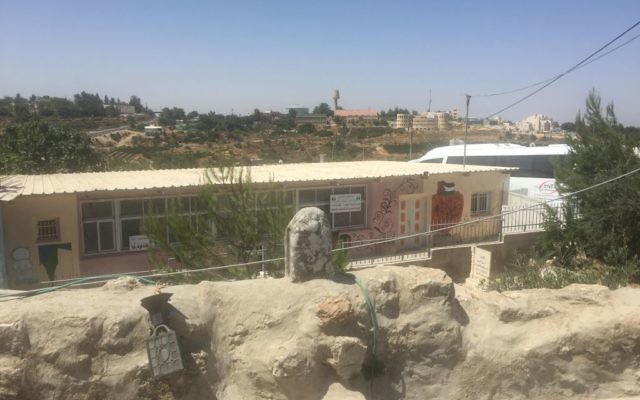Language of Diplomacy at Play in ‘West Bank’
Ambassador David Friedman nearly changed U.S. policy with a request to use "Judaea and Samaria."

In the realm of international diplomacy and conflict resolution, precise language is of the utmost importance. Words and labels often contain untold meaning; the wrong turn of phrase or an incorrect translation can inflame tensions instantly.
Perhaps no arena is more linguistically delicate than the Israeli-Palestinian conflict.
In late April it was reported that the United States’ ambassador to Israel, David Friedman, sought to use the term “Judaea and Samaria” in official remarks and statements when referring to what the international community widely refers to as the West Bank. Sources told The Associated Press that the Trump administration prevented him from doing so.
The region between Israel and Jordan has been a flash point of controversy since it was captured by Israel in the Six-Day War of June 1967. Had Friedman been permitted to use Judaea and Samaria in an official capacity, it would have signaled a major shift in longstanding U.S. foreign policy.
The phrase is the combination of two ancient Hebrew terms. Judaea originates from the name Yehuda; it is the area southwest of Jerusalem that was ruled by the Israelite tribe of Judah from 934 to 586 B.C.E. Samaria (Shomron) was an ancient city purchased by King Omri in the ninth century B.C.E. Over time, the name came to represent the area bounded by the Jezreel Valley and the Jerusalem Mountains.
The Israeli military officially adopted the phrase in 1968. Although most often used by Israelis on the political and religious right, the resurrection of the use of Judaea and Samaria indicated that the Israeli government recognized the region to be a historically significant part of the Jewish homeland.
The term West Bank, or ad-Diffah I-Garbiyyah in Arabic, was first used by Jordan to differentiate the region from the east bank of the Jordan River. This differentiation was made necessary in 1949 when the armistice lines between Israel and Jordan were accepted.
After two years of administration over the area, Jordan officially annexed both the West Bank and East Jerusalem on April 24, 1950. Although this annexation was never recognized by the international community (with the exception of the United Kingdom), Jordan held the region until Israel gained control in 1967.
Despite the fact that “West Bank” had been adopted less than 20 years earlier, the term has been almost uniformly accepted by the international community as the “correct” way to refer to the region.
Today, the phrase Judaea and Samaria is widely viewed as a biblical term. However, it is interesting to note that in the United Nations partition plan (U.N. Resolution 181) passed on Nov. 29, 1947, the United Nations uses the term to describe the region. The resolution states that “the boundary of the hill country of Samaria and Judaea starts on the Jordan River at the Wadi Malih southeast of Beisan and runs due west to meet the Beisan-Jericho road.”
The term can more aptly be described as historical, given that it was used both earlier and for much longer than its Jordanian/Arabic counterpart.
The first Israeli prime minister to use Judaea and Samaria in nearly all statements was Menachem Begin, who recognized the significance of precise diplomatic language. Israeli prime ministers since Begin, in Labor and Likud, have followed his lead in adopting the phrase.
In 1992, Yitzhak Rabin presented his government to the Knesset by stating that a final step toward a permanent solution must include Palestinian “autonomy in Judaea and Samaria.”
In 2003, Ariel Sharon discussed “a democratic Palestinian state with territorial contiguity in Judaea and Samaria.”
Benjamin Netanyahu continues the tradition today, stating last year that “Israel will never withdraw from any Jewish settlement in Judaea and Samaria.”
The term has never been implemented in any official capacity by the United States. Had the Trump administration allowed Friedman to adopt this terminology, it would have represented an unprecedented U.S. recognition of Israel’s historical claim to the region.
Emory alumnus Jacob Zack is the academic research coordinator with the Center for Israel Education (www.israeled.org), where he focuses on the U.S.-Israel relationship.



comments